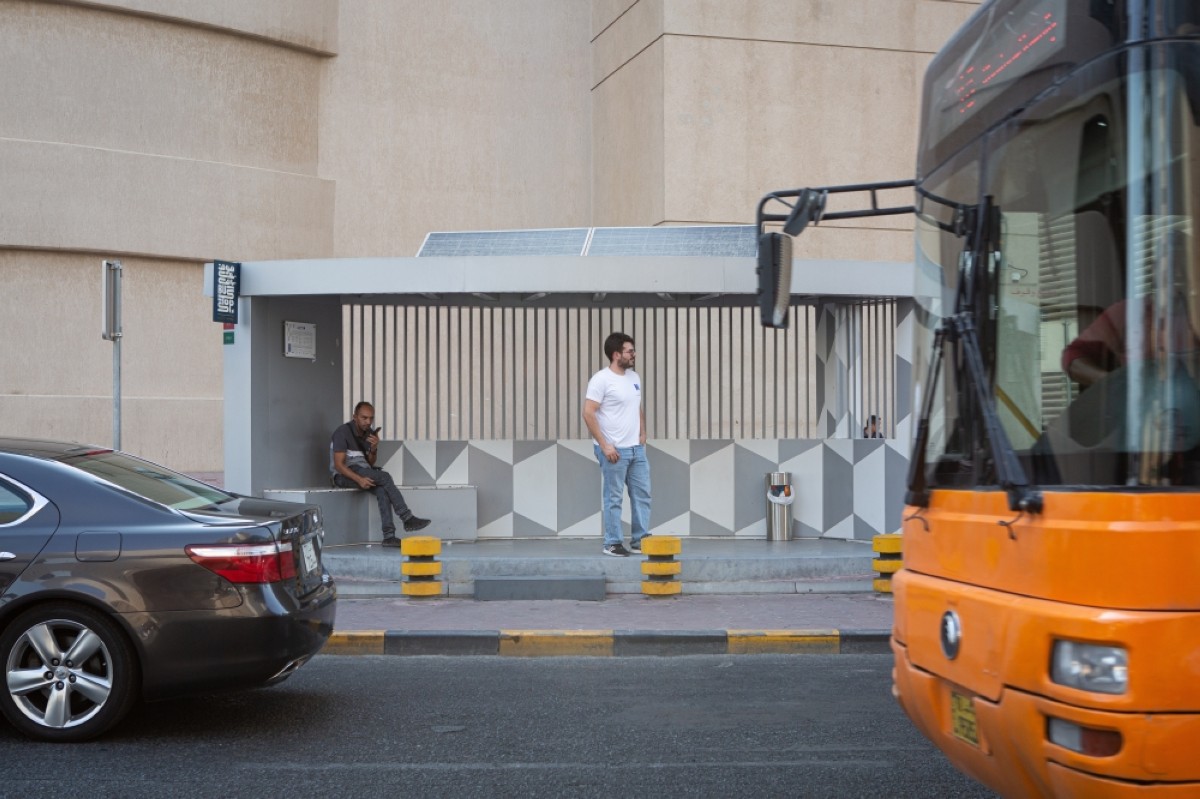KUWAIT: Kuwait’s poorly organized bus network counts as the primary obstacle to improving the country’s public transit over the past 40 years, says Jassim Al-Awadhi, Founder of the Kuwait Commute Initiative. He specifically stated that regulating bus stops is crucial for ensuring a more effective and comfortable transit experience.
Awadhi’s remarks followed the latest meeting between the Ministry of Interior and the Supreme Council for Traffic, which focused on enhancing public transportation in Kuwait. The discussions covered various strategies to improve traffic flow, including proposals for better road infrastructure and the possibility of increasing traffic fines to manage congestion more effectively.
One of the main causes behind the issue of congestion, said Awadhi, is a shortage of bus stops within a well-organized public transit network, causing buses to operate randomly. The status quo has resulted in limited bus coverage, confusion on the roads, traffic jams, and delays.
Awadhi’s sentiments were echoed by Jumannah, a resident in Kuwait. "We need better routes! It’s beyond me why we have to spend an hour on some routes to reach a destination that should only take 20 minutes,” she said. "Kuwait is such a small country. Rerouting is essential to save everyone’s time,” she wrote in a comment on a social media post about the latest governmental meeting.


To solve the problem at its core, Awadhi has proposed a "bus loop system.” This system organizes bus routes into a circular pattern, with buses starting and ending at the same point — for example, a bus with a route beginning in Kuwait City would end its journey at the same location. Awadhi noted that the Kuwait Commute has presented this proposal to several governmental institutions, including the Ministry of Public Works, Ministry of Interior, Ministry of Social Affairs, and Ministry for Cabinet Affairs. Additionally, the proposal was discussed during a meeting with the Supreme Council for Traffic.
If implemented, Awadhi believes the system will offer several benefits for passengers. For one, it will provide more frequent bus stops within a cohesive network. The system will also force buses to operate according to a regular schedule, which will enhance travel efficiency and overall traffic flow. The loop system will make it easier for passengers to locate designated stops on Kuwait maps and track arrival and departure times accurately. Additionally, it will better connect residential and commercial areas, addressing the needs of commuters more effectively. Awadhi’s suggested system will also enable authorities to hold bus drivers accountable for adhering to designated stops, a concern that has also been raised by Hassan Ashraf, an Indian expat.
Speaking to Kuwait Times, Ashraf called for strict action against bus drivers who fail to stop at designated stops or drive by despite passengers waiting. He also advocated for a centralized bus pass system — a single pass for all buses — which could attract more passengers and reduce unnecessary waiting times. Awadhi echoed this sentiment, suggesting that all bus companies should be unified into one entity.
The Indian expat highlighted the need for an adequate number of buses on all routes and strict adherence to schedules. Finally, he added that residents in Kuwait are expecting modern amenities on buses, such as high-quality interiors and air conditioning systems, which has been a common consensus on social media.

